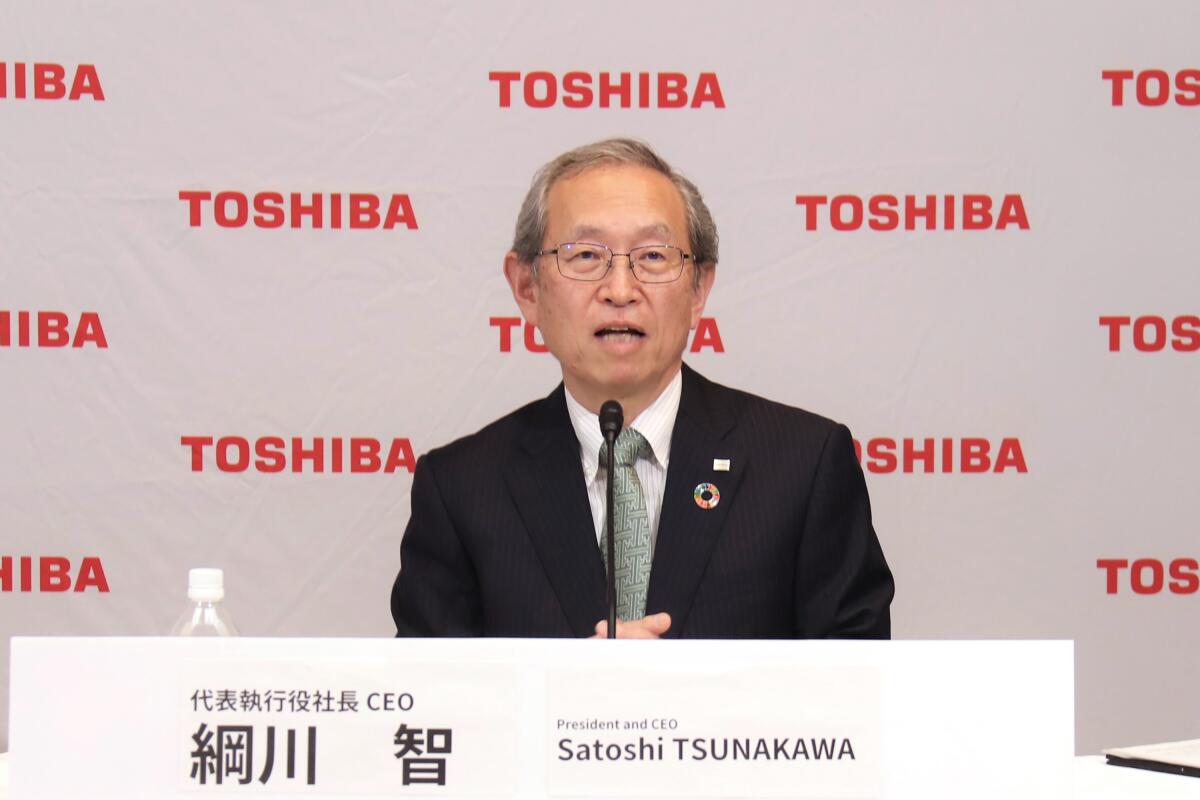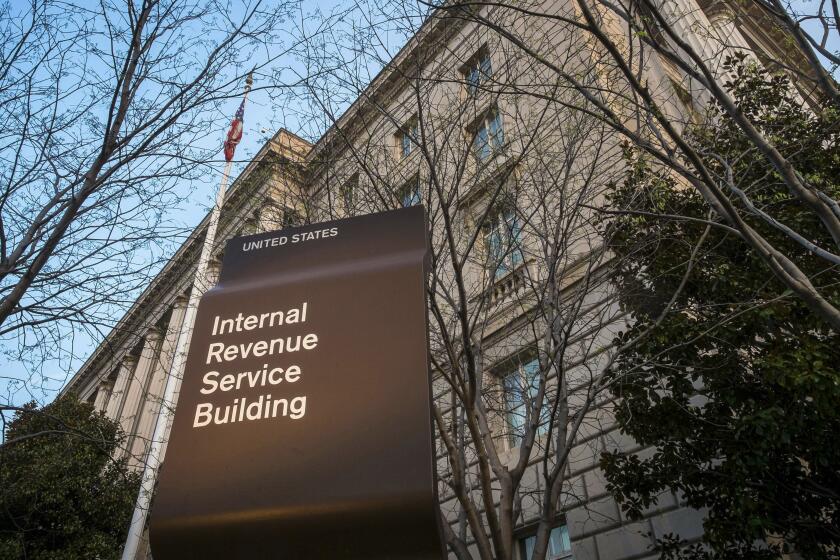President of Toshiba Corp. steps down amid acquisition talks

TOKYO — The president of Toshiba Corp. stepped down Wednesday, a week after the Japanese technology and manufacturing giant said it was studying an acquisition proposal from a global fund where he previously worked.
Nobuaki Kurumatani tendered his resignation at a board meeting, and the board accepted, effective Wednesday, Tokyo-based Toshiba said in a statement.
Kurumatani headed the Japan operations of CVC Capital Partners, which proposed the acquisition last week, before taking his post as chief executive of Toshiba in 2018.
Some questions had been raised, both within and outside Tokyo-based Toshiba, about Kurumatani leading the board discussions on the acquisition.
Kurumatani did not attend an online news conference Wednesday at which two board members explained his resignation and fielded questions.
A company executive read a statement from Kurumatani that said the resignation was for personal reasons. “Toshiba is a wonderful company and is Japan’s precious wealth. I love Toshiba deeply,” Kurumatani said.
The longtime partners, based in Miami and Mexico City, plan to finally tie the knot. Google and SoftBank Latin America Fund will become investors.
The CVC deal is estimated to be worth 2 trillion yen ($18 billion) and will turn Toshiba private. Toshiba had said it was giving it “careful consideration.” Osamu Nagayama, a board member, told reporters that the proposal lacked details and could not yet be evaluated.
Trading in the company’s shares was suspended when the news of acquisition talks hit last week. Shares of Toshiba, whose sprawling business includes making elevators and railways, shot up on the CVC news and have been trading at nearly 5,000 yen ($46).
CVC, a European private equity firm based in Luxembourg, has committed nearly $162 billion in funds, managing more than 300 investors. It has declined to comment on the acquisition proposal or the Kurumatani’s resignation.
But speculation has been growing that other funds may offer a better price for Toshiba.
The head of the IRS calculated that tax evasion in the U.S. may be much more than previous estimates from the federal government.
Kurumatani has been as chief executive and president by his predecessor, Satoshi Tsunakawa, who remained on the board, first as COO and currently chairman.
Tsunakawa oversaw some of the recent financial challenges at Toshiba. Before becoming CEO, in his previous stint from 2016, he had headed Toshiba’s medical systems business, now a group company of Japanese camera and equipment maker Canon.
Tsunakawa told reporters that Toshiba was ready to embark on growth as “an infrastructure services company.” He promised to work in the interests of shareholders, employees and society overall, and continue to strengthen governance.
“We stand behind the principle of ‘Do the right thing,’ ” he said, delivering the motto in English.
Toshiba, founded in 1875, was long revered as one of Japan’s respected brands, developing the nation’s first radar and microwaves, electric rice cookers and laptop computers.
It also invented flash memory, the ubiquitous computer chips that store and retain data for digital cameras, cellphones and other gadgets. Toshiba no longer makes laptops, and it has sold its computer chips division.
The company’s fortunes began to crumble over its heavy investment in nuclear power. After the March 2011 nuclear disaster in Fukushima, the company’s costs ballooned because of growing safety concerns and as some nations turn toward sustainable energy.
Toshiba also had massive losses from the nuclear-power operations of U.S. manufacturer Westinghouse, which Toshiba acquired in 2006. Westinghouse filed for bankruptcy protection in 2017.
In 2015, Toshiba acknowledged that it had been systematically falsifying its books since 2008, as managers tried to meet overly ambitious targets. An outside investigation found it had inflated profits and hidden massive expenses.
More to Read
Inside the business of entertainment
The Wide Shot brings you news, analysis and insights on everything from streaming wars to production — and what it all means for the future.
You may occasionally receive promotional content from the Los Angeles Times.











